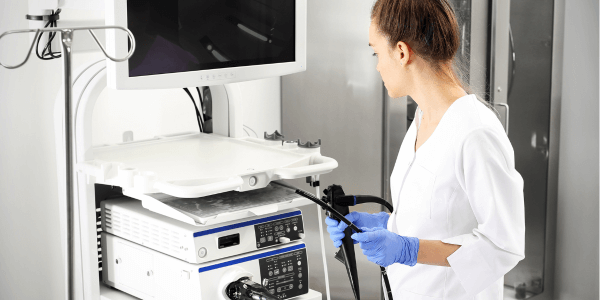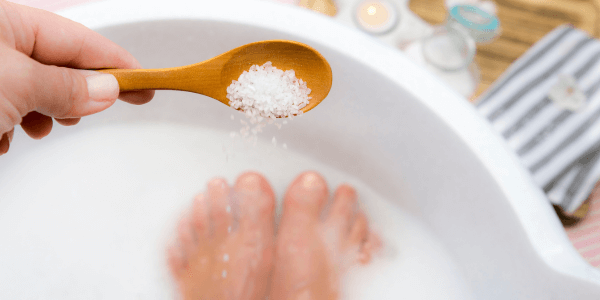Health Hub
Understanding anal fissures: Causes, symptoms, diagnosis and treatment options

Anal fissures are a common condition that affects many people, regardless of age or gender. It is a painful and uncomfortable condition that can cause significant discomfort and embarrassment.
If you are experiencing anal fissures, it is important to understand the causes, symptoms and treatment options available to you. In this article, we will explore anal fissures in detail, discussing their causes, symptoms and treatment options. We will also answer some of the most commonly asked questions about this condition.
What are Anal Fissures?
Anal fissures are a common condition that affects many people around the world. They are small tears or cuts in the lining of the anus, which can cause significant discomfort and pain. Anal fissures can occur for a variety of reasons, including straining during bowel movements, constipation, diarrhoea, childbirth and anal sex.
While anal fissures can be uncomfortable and painful, they are a treatable condition. If you are experiencing symptoms of anal fissures, it is important to seek medical attention to determine the underlying cause and develop an appropriate treatment plan.
Causes of Anal Fissures
Anal fissures can be caused by a variety of factors, both internal and external. Some of the most common causes of anal fissures include:
- Constipation
- Straining during bowel movements due to hard and infrequent stools can cause small tears in the lining of the anus
- Diarrhoea
- Frequent bowel movements with loose stools can also cause irritation and small tears in the anal lining.
- Childbirth
- The process of childbirth can cause trauma to the anal area, leading to the development of fissures.
- Anal sex
- The friction and pressure of anal sex can cause tears in the anal lining.
- Inflammatory bowel disease (IBD)
- Conditions such as Crohn’s disease and ulcerative colitis can cause inflammation and damage to the anal lining.
- Spinal cord injury
- Nerve damage from a spinal cord injury can affect bowel movements and increase the risk of anal fissures.
- Radiation therapy
- Radiation therapy for pelvic cancers can cause damage to the anal area, leading to the development of fissures.
- Anal trauma
- Trauma to the anal area from an injury or surgery can cause the development of anal fissures.
- Medications
- Some medications, such as certain laxatives and stool softeners, can cause diarrhoea or constipation, increasing the risk of anal fissures.
- Age
- As we age, the tissues of the anal area become less elastic, making them more prone to tearing.
Overall, understanding the various causes of anal fissures is important for prevention and treatment. In some cases, lifestyle modifications such as dietary changes, increased water intake and regular exercise can help prevent the development of anal fissures.
Symptoms of Anal Fissures
Anal fissures can cause a range of symptoms, including:
- Pain during bowel movements
- Burning or itching around the anus
- Bleeding during bowel movements
- Bright red blood on toilet paper or in the toilet bowl
- Discomfort or pressure in the rectum
- A feeling of incomplete bowel movement
- Constipation or difficulty passing stools
- Diarrhoea or loose stools
- Muscle spasms in the anal area
- Sensitivity or tenderness around the anus
The severity and frequency of symptoms can vary from person to person.
The most common symptom of anal fissures is pain during bowel movements. This pain can range from mild to severe and may last for several hours after a bowel movement. The pain is typically described as sharp and may be accompanied by a burning or itching sensation around the anus.
Bleeding is a common symptom of anal fissures. This bleeding is typically bright red and may be visible on toilet paper or in the toilet bowl after a bowel movement. In some cases, small amounts of blood may be present on the surface of the stool.
In addition to pain and bleeding, anal fissures can cause discomfort and a feeling of fullness in the rectum. This discomfort can be constant or may come and go throughout the day.
To spot the symptoms of anal fissures, it is important to pay attention to changes in bowel movements and any discomfort or pain in the anal area. Symptoms may worsen during periods of constipation or diarrhoea and may improve with treatment.

How is an anal fissure diagnosed?
An anal fissure is typically diagnosed through a physical exam and a review of the patient’s medical history. During the physical exam, a healthcare provider will typically examine the anal area for signs of a fissure, including redness, swelling and the presence of any tears or cuts. They may also perform a digital rectal exam to check for any abnormalities in the rectal area.
In some cases, additional tests may be necessary to confirm the diagnosis or rule out other conditions. These tests may include:
- Anoscopy
- This procedure involves using a small, lighted scope to examine the anal canal and rectum for signs of a fissure or other abnormalities.
- Sigmoidoscopy
- This procedure involves using a flexible tube with a camera to examine the lower part of the colon for any signs of inflammation or other conditions that may be contributing to the patient’s symptoms.
- Colonoscopy
- This procedure involves using a longer, flexible tube with a camera to examine the entire colon for signs of inflammation or other conditions.
In some cases, imaging tests such as an MRI or CT scan may also be used to provide a more detailed view of the anal area and surrounding tissues.
Treatment Options for Anal Fissures

Foods
Eating certain foods can help manage the symptoms of anal fissures and promote healing. A high-fibre diet can help soften stools and reduce the strain during bowel movements, which can exacerbate the fissure. In addition to fibre, foods that are high in water content, such as fruits and vegetables, can also help keep stools soft and promote regular bowel movements.
Some specific foods that may be beneficial for those with anal fissures include:
- Fruits and Vegetables
- Apples, pears, berries, prunes, broccoli, spinach and other leafy greens are high in fibre and water content, making them an excellent choice for promoting regular bowel movements.
- Whole Grains
- Whole grain bread, brown rice, quinoa and other whole grain foods are also high in fibre and can help soften stools.
- Lean Proteins
- Lean meats, such as chicken and fish, can help provide essential nutrients without contributing to constipation.
- Healthy Fats
- Foods such as nuts, avocados and olive oil can help keep stools soft and promote regular bowel movements.
It is important to avoid foods that can contribute to constipation and worsen symptoms, such as processed foods, dairy products and red meats. It is also important to stay well hydrated by drinking plenty of water throughout the day.
While dietary changes alone may not be sufficient to heal an anal fissure, they can be an important part of a comprehensive treatment plan.
Topical creams
Topical creams containing numbing agents, such as lidocaine, can help reduce pain and discomfort associated with anal fissures. These creams work by numbing the nerves in the affected area, reducing the sensation of pain. In addition to numbing agents, some creams may also contain steroids or calcium channel blockers, which can help reduce inflammation and promote healing of the fissure.
It is important to note that while topical creams can provide temporary relief from symptoms, they do not address the underlying cause of the fissure. Therefore, they should be used in conjunction with other treatments, such as dietary changes or medical interventions, to promote healing and prevent the fissure from recurring.
When using topical creams, it is important to follow the instructions provided by the healthcare provider or on the packaging. Overuse of numbing agents can lead to skin irritation or other complications and using the wrong type of cream can worsen symptoms. It is also important to avoid using harsh soaps or wipes, which can irritate the fissure and make symptoms worse.
Surgical options
Surgical options may be considered for those who have chronic or severe anal fissures that do not respond to other treatments. Surgery is typically considered a last resort after other treatments have been tried and it is typically reserved for cases where the fissure has persisted for several weeks or months and is causing significant pain and discomfort.
There are several surgical options for treating anal fissures, including:
- Lateral internal sphincterotomy
- This procedure involves cutting a small portion of the internal anal sphincter muscle to reduce pressure and promote healing.
- Fissurectomy
- This involves the surgical removal of the fissure and surrounding tissue, which can help promote healing.
- Advancement flap repair
- This involves moving a flap of tissue from the rectal wall to cover the fissure, which can help promote healing and reduce the risk of recurrence.
- Botulinum toxin injection
- This involves injecting botulinum toxin into the internal anal sphincter muscle, which can help relax the muscle and reduce pressure on the fissure.
Surgical options for anal fissures are generally safe and effective, but they do carry some risks, including bleeding, infection and faecal incontinence. Recovery time can vary depending on the type of surgery performed and the individual’s overall health, but most people can return to normal activities within a few days to a few weeks after surgery.
Home Remedies

There are several home remedies that can help manage the symptoms of anal fissures and promote healing. While these remedies are not a substitute for medical treatment, they can be used in combination with other treatments to provide additional relief.
Here are some common home remedies for anal fissures:
- Warm baths
- Soaking in warm water can help relax the anal muscles, reduce pain and inflammation and promote healing. Adding Epsom salt or baking soda to the bathwater can also help relieve discomfort.
- Fibre-rich diet
- Eating a diet rich in fibre can help soften the stool and reduce the risk of constipation, which can worsen anal fissures. Good sources of fibre include fruits, vegetables, whole grains and legumes.
- Hydration
- Drinking plenty of water can help soften the stool and prevent constipation, which can reduce the risk of anal fissures.
- Sitz baths
- Sitz baths involve sitting in a shallow bowl of warm water for 10-15 minutes several times a day. This can help soothe the affected area and promote healing.
- Topical treatments
- Applying over-the-counter creams or ointments that contain numbing agents, such as lidocaine or hydrocortisone, can help relieve pain and itching.
- Avoiding irritants
- Avoiding foods and drinks that can irritate the anal area, such as spicy foods, caffeine and alcohol, can help reduce symptoms.
While these home remedies can be helpful in managing the symptoms of anal fissures, it is important to consult with a healthcare provider if you have persistent or severe symptoms. They can help determine the underlying cause of your fissure and recommend appropriate treatment. In some cases, medical treatment or surgery may be necessary to promote healing and prevent recurrence.
Medical Treatments
Medical treatments for anal fissures typically involve prescription medications or minimally invasive procedures. These treatments may be recommended by a healthcare provider if home remedies and lifestyle changes do not provide sufficient relief or if the fissure is severe or chronic.
Here are some common medical treatments for anal fissures:
- Nitroglycerin cream
- This cream is applied to the anal area and works by relaxing the internal anal sphincter, which can help reduce pain and promote healing.
- Calcium channel blockers
- These medications are typically used to treat high blood pressure, but they can also be effective in treating anal fissures by relaxing the anal sphincter muscle and increasing blood flow to the area.
- Botulinum toxin injection
- This procedure involves injecting a small amount of botulinum toxin (Botox) into the anal sphincter muscle, which can help relax the muscle and promote healing.
- Lateral internal sphincterotomy
- This is a surgical procedure that involves making a small incision in the anal sphincter muscle to help relax the muscle and promote healing. This procedure is typically reserved for severe or chronic fissures that do not respond to other treatments.
- Advancement flap surgery
- This procedure involves creating a flap of tissue from the inner lining of the anus and using it to cover the fissure. This can help promote healing and reduce the risk of recurrence.
- Fissurectomy
- This procedure involves surgically removing the fissure and any surrounding tissue to promote healing. This procedure is typically reserved for severe or chronic fissures that do not respond to other treatments.
It is important to discuss the risks and benefits of each treatment option with a healthcare provider to determine the most appropriate course of treatment for your individual needs. In some cases, a combination of medical treatments may be necessary to effectively manage anal fissures.
How to prevent anal fissures?

Prevention is key when it comes to anal fissures. While they can be painful and uncomfortable, there are steps you can take to minimise your risk of developing them.
Here are some tips to help prevent anal fissures:
- Eat a healthy diet
- Eating a diet rich in fibre can help prevent constipation and make bowel movements easier. Make sure to include plenty of fruits, vegetables and whole grains in your diet.
- Stay hydrated
- Drinking enough water can help prevent constipation and make stools easier to pass.
- Exercise regularly
- Regular exercise can help keep your digestive system functioning properly and prevent constipation.
- Practise proper anal hygiene
- After bowel movements, clean the area around the anus gently with warm water and a soft cloth or toilet paper. Avoid using harsh soaps or wipes that can irritate the skin.
- Avoid straining during bowel movements
- Straining during bowel movements can cause trauma to the anal area and increase the risk of developing anal fissures. If you are constipated, try using a stool softener or fibre supplement to make bowel movements easier.
- Take breaks from sitting
- Sitting for prolonged periods of time can put pressure on the anus and increase the risk of developing anal fissures. Make sure to take breaks and move around periodically throughout the day.
- Seek treatment for underlying conditions
- Certain medical conditions, such as Crohn’s disease, ulcerative colitis and inflammatory bowel disease, can increase the risk of developing anal fissures. Seek treatment for any underlying conditions that may be contributing to your symptoms.
If you do experience symptoms of anal fissures, it is important to seek medical treatment as soon as possible to prevent complications and ensure proper healing.
Frequently Asked Questions about Anal Fissures
- Can anal fissures heal on their own?
- In some cases, anal fissures can heal on their own with home remedies and lifestyle changes. However, in more severe or chronic cases, medical treatment may be necessary.
- Are there any complications associated with anal fissures?
- Complications of anal fissures can include chronic pain, infection, abscesses and anal fistulas. It is important to seek medical treatment if symptoms persist or worsen.
More information
- If you’re concerned about anal pain or anal fissures it’s important to speak to your GP. If you don’t have access to a GP, you can make an appointment with a same day private GP here at King Edward VII’s Hospital.
- Our Colorectal Surgery Department has a team of bowel cancer specialists with access to the most up-to-date screening and treatment options, including our Colorectal Robotics Service, the UK’s premier service for patients with colorectal cancers.
Article Sections
Latest Hospital News
Should you wish to speak to our press team, please visit Press Enquiries




